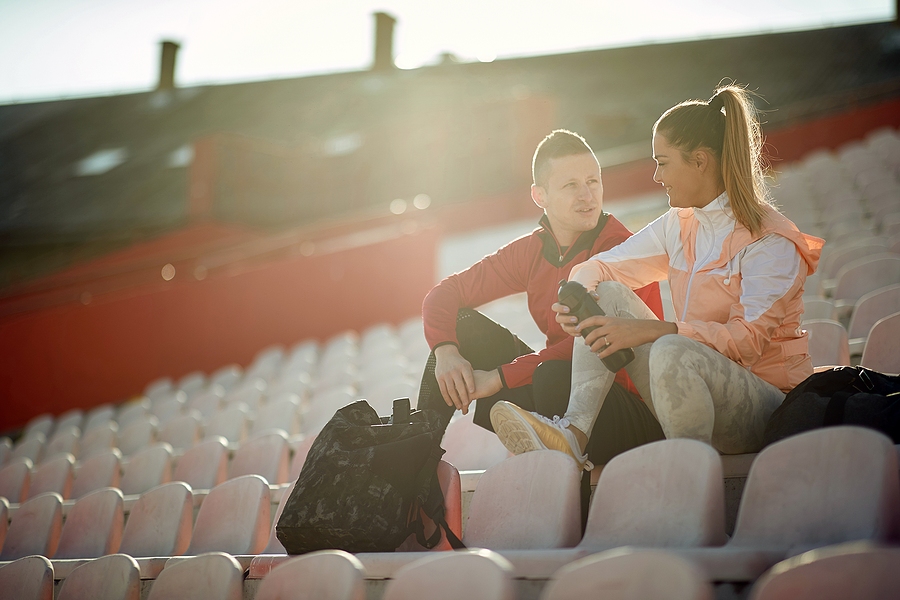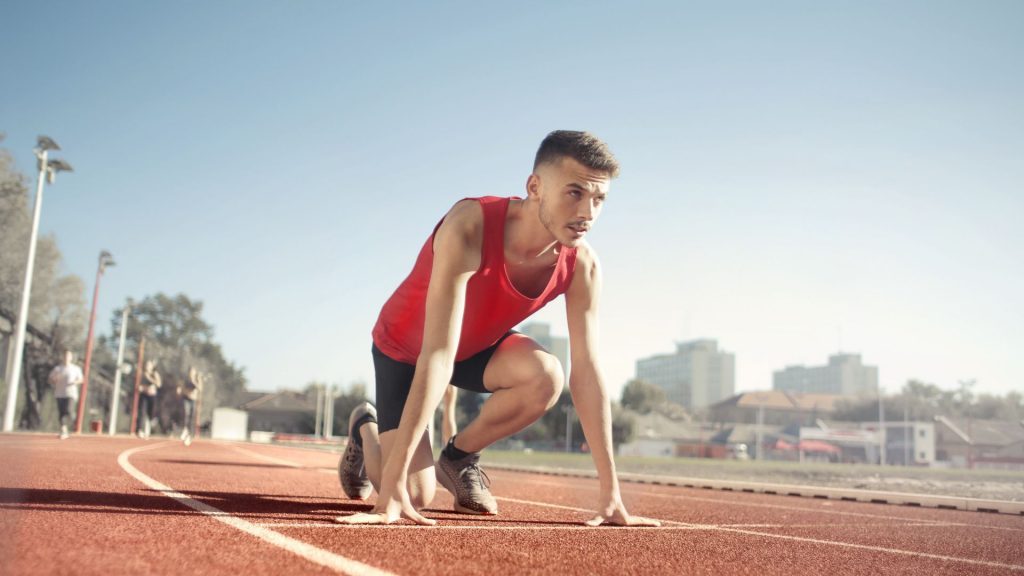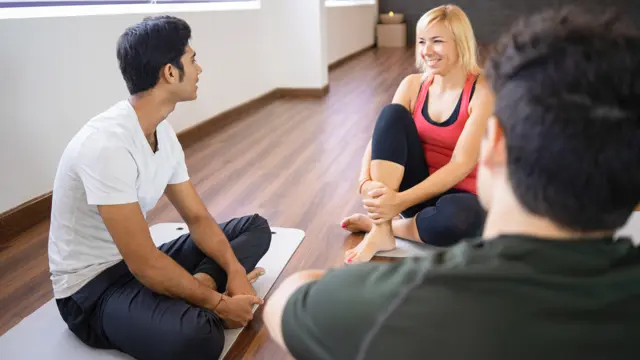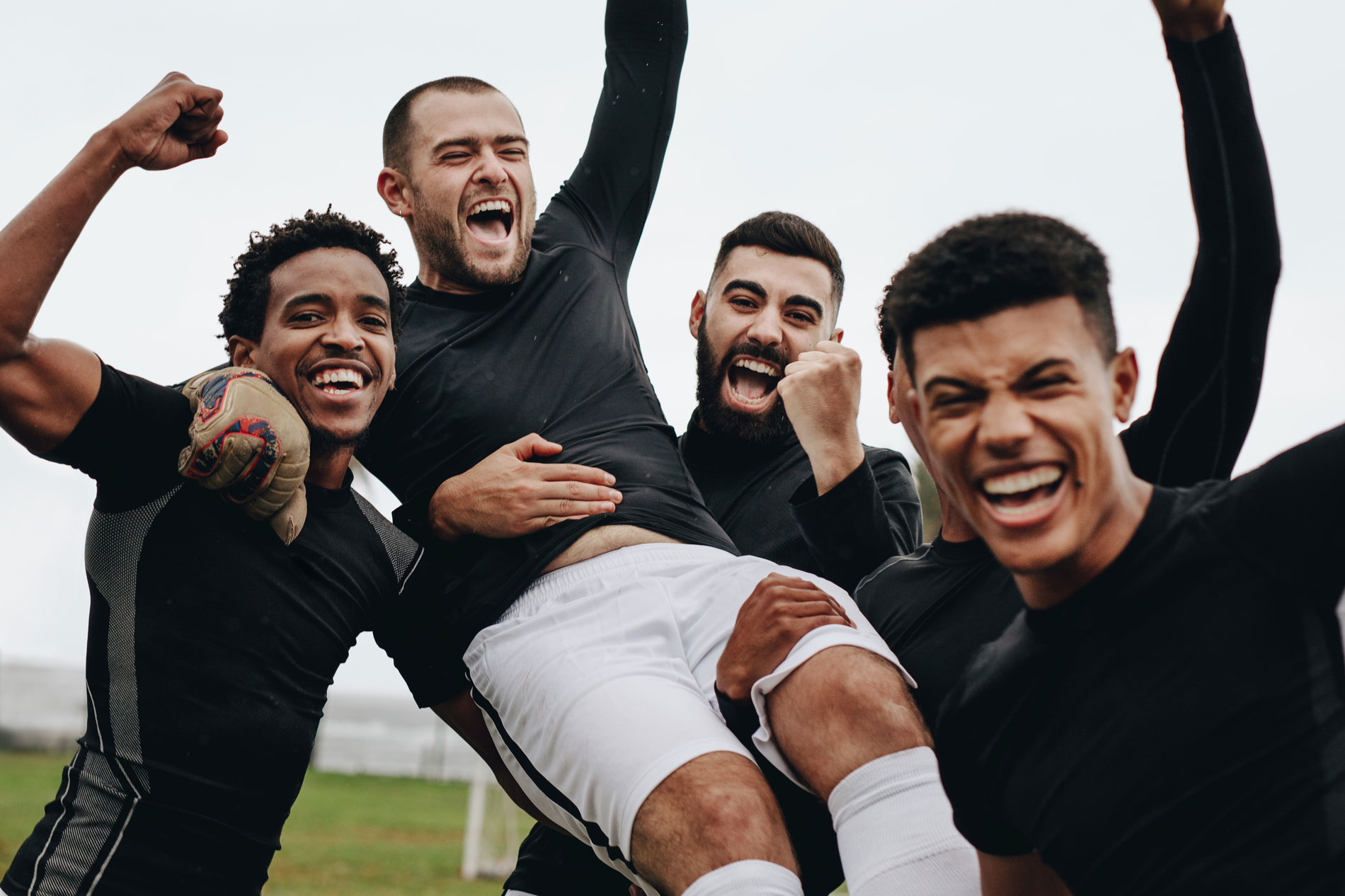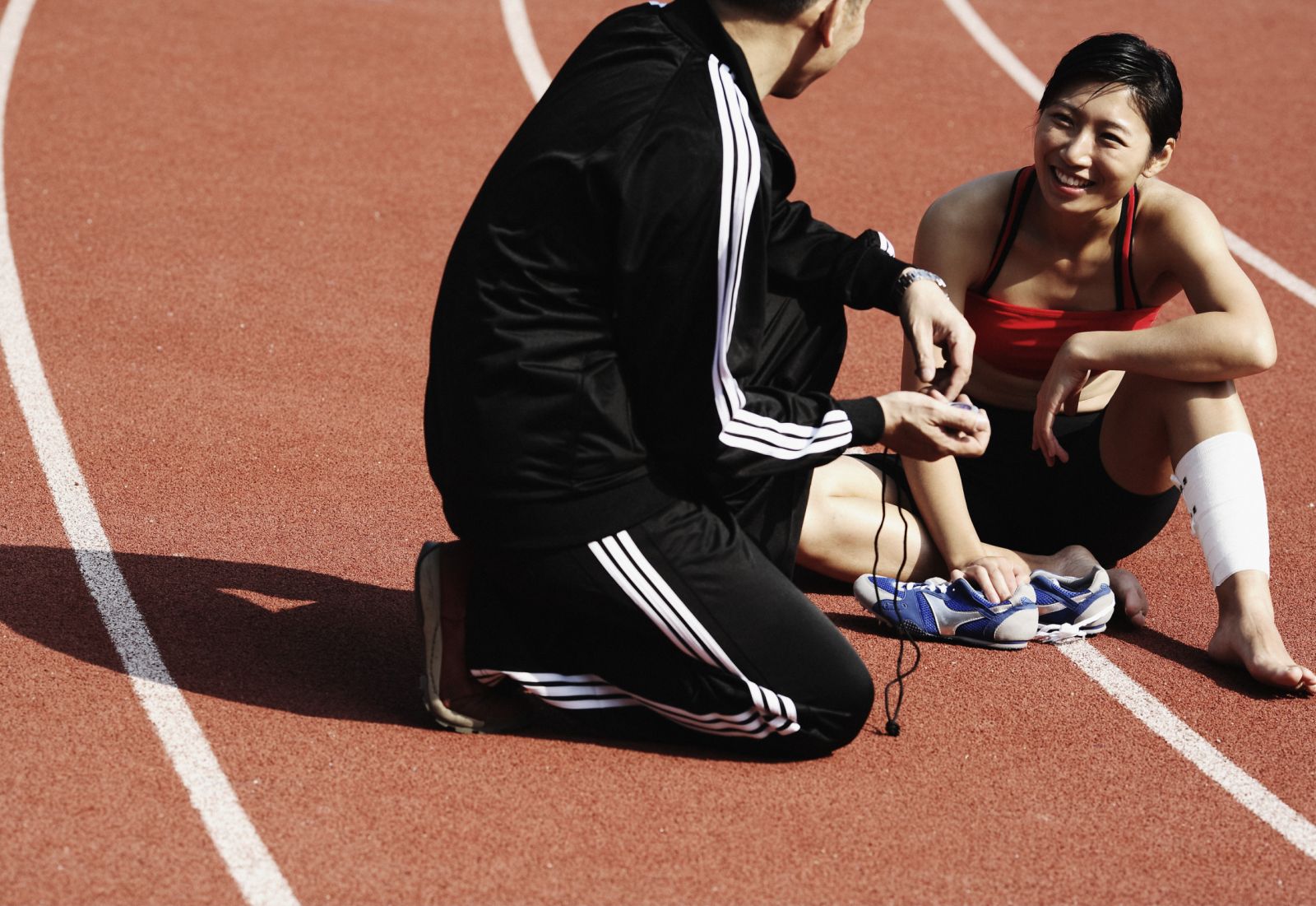Sport Performance Training in McLean, VA: Exploring the Psychology Behind Youth Sports and Its Impact on Young Athletes
Youth sports play a pivotal role in shaping the mental, emotional, and social development of young athletes. While physical skills and athletic performance are often the focus, the psychological aspects of participating in sports are equally important. Understanding how sports influence young minds helps parents, coaches, and educators create an environment that fosters growth and positive outcomes.
The Psychological Benefits of Youth Sports
- Improved Self-Esteem: Learning new skills, achieving goals, or contributing to a team’s success can boost confidence and self-worth.
- Stronger Coping Mechanisms: Sports teach children how to manage stress, handle setbacks, and bounce back from failure.
- Enhanced Social Skills: Team settings encourage collaboration, communication, empathy, and conflict resolution.
- Emotional Regulation: Regular participation in physical activity helps reduce anxiety levels while improving mood stability.
These benefits underscore why it’s essential for young athletes to engage in structured sports programs that emphasize emotional development as much as physical achievements.
The Psychological Challenges Young Athletes May Face
- Performance Pressure: Intense expectations from parents or coaches may lead to anxiety or burnout.
- Fear of Failure: A hyper-focus on winning might cause children to avoid risks or feel discouraged by mistakes.
- Overtraining Syndrome: Excessive demands on time and energy can lead to both mental fatigue and physical exhaustion.
- Social Comparisons: In competitive environments, some young athletes may develop feelings of inadequacy when comparing themselves to peers.
By identifying these challenges early on, adults involved in youth sports can implement strategies that prioritize mental health alongside athletic performance.
Positive Coaching Practices for Mental Wellness
- Focus on effort over results to help children embrace learning opportunities rather than fear failure.
- Encourage open communication so kids feel comfortable discussing any struggles they face within the sport.
- Provide balanced feedback that includes both constructive criticism and praise for strengths.
- Promote team camaraderie by emphasizing cooperation over competition among teammates.
Long-Term Impact on Development
The psychological lessons learned through youth sports extend far beyond athletic arenas. Skills like resilience, perseverance, teamwork, problem-solving under pressure—these qualities serve children well into adulthood across various contexts such as academics or professional careers.
A balanced emphasis on physical performance along with mental wellness ensures that youth sports act as a catalyst for healthy development rather than a source of undue stress. By understanding the psychology behind these activities—and addressing challenges proactively—parents and coaches can help unlock a child’s full potential both on and off the field.
Effective Strategies a Sports Psychologist McLean, VA Recommends for Positive Mental Health Outcomes in Sports
Mind Balance Sports Psychologists in Mclean, Virginia
https://www.mindbalancesport.com/
1355 Beverly Rd suite 225, McLean, VA 22101, United States
+17039121776
Sports play a pivotal role in shaping the mental health of athletes, particularly young individuals. However, achieving positive mental health outcomes in sports requires intentional efforts and well-structured strategies. Below are three key strategies that can create a supportive environment for athletes to thrive mentally and emotionally.
Creating a Culture of Support with a Sports Mental Coach in McLean, VA
A positive team culture is essential for fostering good mental health among athletes. Coaches and trainers need to create an environment where athletes feel valued, respected, and supported.
- Encouraging Open Communication: Athletes should feel comfortable sharing their concerns without fear of judgment or ridicule.
- Recognizing Individual Contributions: Celebrate individual achievements, regardless of their scale, to boost self-esteem.
- Promoting Team Bonding Activities: Organize activities outside of sports to strengthen relationships among team members.
| Characteristic | Description | Impact on Mental Health |
| Open Communication | Transparent dialogue between athletes | Reduces anxiety and builds trust |
| Inclusivity | Acceptance of diverse backgrounds | Enhances sense of belonging |
| Encouragement | Positive reinforcement from coaches | Boosts confidence and motivation |
Developing Coping Mechanisms for Stress Through Sports Psychiatry in McLean, VA
Sports can be inherently stressful due to high-performance expectations, competition pressures, or even personal challenges outside the game. Teaching athletes how to manage stress effectively is crucial.
- Mindfulness Practices: Techniques like deep breathing, visualization, or meditation help regulate emotions during high-pressure situations.
- Time Management Skills: Assist athletes in balancing academic, social, and athletic demands efficiently.
- Focus on Process Over Outcome: Encourage focusing on effort rather than just results to reduce performance-related anxiety.
Example Techniques for Stress Reduction: – Progressive muscle relaxation – Journaling emotions after games – Structured cooldown routines post-training or competition
These practices help ensure that stress remains manageable while maintaining peak performance levels.
How Sports And Performance Psychology in McLean, VA Encourages Positive Self-Talk and Inner Dialogue
Self-perception influences how athletes respond to challenges both on and off the field. By fostering positive self-talk habits, sports psychologists can help individuals build resilience against negative thinking patterns.
Ways to Cultivate Positive Self-Talk: 1. Reframing Negative Thoughts: Replace “I can’t do this” with “I’m still improving at this.” 2. Setting Realistic Goals: Break tasks into achievable milestones rather than overwhelming objectives. 3. Using Affirmations: Statements such as “I am prepared” or “I am capable” reinforce self-belief before competitions.
Positive affirmations not only improve confidence but also enhance overall mental well-being by reducing self-doubt during critical moments.
By integrating these three strategies—building supportive cultures, teaching coping mechanisms for stress management, and encouraging positive self-talk—athletes are better equipped to achieve optimal mental health outcomes within sports environments. These practices contribute toward creating not only stronger competitors but also well-rounded individuals prepared for challenges beyond sports contexts.
Discover How a Sports Psychologist Near Me Can Help Achieve Positive Mental Health Outcomes in Sports
Mental health is a crucial aspect of athletic performance and overall well-being. For athletes, particularly those in youth sports, fostering positive mental health outcomes can enhance their experience, help them navigate challenges, and support personal growth. Below are three effective strategies that can be employed to promote positive mental health outcomes in sports.
1. Encouraging Open Communication
Open communication between athletes, coaches, parents, and teammates builds trust and creates a supportive environment that nurtures mental well-being. When athletes feel heard and understood, they are more likely to express their emotions and seek help when needed.
Key practices for fostering open communication: – Active listening: Coaches and parents should practice active listening by giving full attention to the athlete’s concerns without judgment or interruption. – Check-ins: Schedule regular one-on-one or group check-ins where athletes can share how they feel about their performance or any external pressures they face. – Normalize vulnerability: Encourage discussions around mental health by normalizing vulnerability within the team culture.
Benefits of open communication: | Benefit | Description | |——————————–|—————————————————————–| | Reduced stress | Athletes feel supported when they share feelings without fear. | | Strengthened relationships | Builds trust among peers, coaches, and family members. | | Increased emotional resilience | Helps athletes manage setbacks with confidence. |
2. Incorporating Mindfulness Practices
Mindfulness helps athletes stay present during training and competitions while reducing anxiety and improving focus. By integrating mindfulness into an athlete’s routine, it becomes easier for them to manage external pressures and maintain a positive mindset.
Techniques for mindfulness in sports: – Breathing exercises: Teach athletes simple techniques like diaphragmatic breathing to calm nerves before high-pressure events. – Visualization: Guide players through visualization exercises where they imagine themselves succeeding in specific scenarios on the field or court. – Body scanning: Help individuals tune into physical sensations by mentally scanning their bodies for areas of tension or discomfort.
Impact of mindfulness on mental health: – Improves focus during training sessions. – Reduces pre-game jitters or performance anxiety. – Enhances overall emotional regulation under stressful conditions.
3. Setting Realistic Goals
Athletes often face immense pressure to perform at their best constantly. While ambition is important, setting unrealistic goals can lead to burnout or feelings of failure when expectations aren’t met. Creating achievable objectives fosters a sense of accomplishment while maintaining motivation over time.
Steps for setting realistic goals: 1. Use the SMART framework (Specific, Measurable, Achievable, Relevant, Time-bound).
Example: Instead of a vague goal like “improve my performance,” try “reduce my sprint time by 0.5 seconds within two months.” 2. Break large goals into smaller milestones. 3. Celebrate progress along the way — acknowledge small victories even if the ultimate goal hasn’t been reached yet.
Advantages of realistic goal-setting: – Boosts self-esteem as athletes consistently meet attainable milestones. – Reduces stress by removing unnecessary pressure tied to perfectionism. – Promotes sustained motivation through clear progress tracking.
By implementing these strategies—encouraging open communication, incorporating mindfulness practices, and setting realistic goals—coaches and parents can create an environment that prioritizes not just physical performance but also mental well-being for athletes at every level of play.
Addressing the Challenges in Sports Psychology and Exploring Potential Solutions
Sports psychology plays a vital role in ensuring athletes can perform at their best, both mentally and physically. However, like any field of practice, sports psychologists face several challenges that impact their ability to deliver effective support. Below, we explore some of these challenges and discuss potential solutions to address them.
1. Stigma Around Mental Health in Sports
Challenge:
Despite increasing awareness about mental health, many athletes still face stigma when seeking psychological help. They may fear being perceived as weak or less committed to their sport if they openly discuss mental struggles.
Potential Solutions: – Education and Awareness Campaigns: Host workshops and seminars to normalize conversations about mental health in sports settings. – Incorporating Mental Health into Training Programs: Make mental training as routine as physical exercises to integrate it into the sporting culture. – Role Models Speaking Out: Encourage high-profile athletes to share their stories of overcoming mental health struggles.
2. Balancing Individual Needs with Team Dynamics
Challenge:
Sports psychologists must address the mental needs of individual athletes while maintaining harmony within a team environment. This balance can be difficult when individual goals conflict with team objectives.
Potential Solutions: – Personalized Goal Setting: Collaborate with coaches to set complementary goals for individuals and teams. – Team-Building Exercises: Facilitate activities that foster trust and collaboration among team members. – Conflict Mediation Training: Equip psychologists with tools for resolving conflicts effectively while maintaining neutrality.
3. Limited Access to Resources
Challenge:
Not all teams or individual athletes have access to sports psychologists due to financial constraints or lack of qualified professionals in their area.
Potential Solutions: – Remote Services Through Teletherapy: Provide online consultations for athletes who cannot meet practitioners in person. – Community Outreach Programs: Partner with local organizations or schools to make sports psychology services accessible at grassroots levels. – Scholarship Funding Initiatives: Advocate for funding that subsidizes psychological services for underprivileged athletes.
4. Managing Performance Anxiety
Challenge:
Performance anxiety is a common issue among athletes, particularly during high-stakes competitions. This anxiety can hinder performance and affect long-term confidence.
Potential Solutions: – Teach relaxation techniques such as deep breathing or progressive muscle relaxation. – Implement visualization practices where athletes rehearse success scenarios mentally. – Promote mindfulness-based training programs aimed at focusing attention on the present moment.
Table: Common Challenges vs. Practical Solutions
| Challenge | Practical Solution |
| Stigma Around Mental Health | Education campaigns; normalize therapy use |
| Balancing Individual & Team Needs | Personalized goal setting; team-building activities |
| Limited Access to Resources | Teletherapy; community outreach programs |
| Performance Anxiety | Relaxation techniques; visualization methods |
5. Adapting Strategies for Different Age Groups
Challenge:
Athletes come from diverse age groups, each requiring tailored psychological approaches based on developmental stages and cognitive maturity.
Potential Solutions: – For younger athletes, keep interventions playful and engaging by incorporating games into sessions. – For older players, provide more structured goal-setting strategies and stress-management techniques. – Use age-specific communication styles that resonate with the athlete’s level of understanding.
By addressing these challenges head-on through proactive strategies, sports psychology can continue evolving as an indispensable component of athletic success at every level of competition.
The Role of a Sports Psychologist in Enhancing Athletic Performance and Mindset
Sports psychologists play a pivotal role in bridging the gap between physical performance and mental excellence. By addressing psychological barriers and enhancing mental skills, they help athletes unlock their full potential on and off the field. Below, we explore the key ways sports psychologists contribute to athletic success.
1. Identifying Psychological Barriers
- Performance anxiety: Fear of failure or judgment during competitions.
- Self-doubt: Lack of confidence in one’s abilities.
- Burnout: Emotional and physical exhaustion stemming from overtraining or stress.
- Fear of injury or re-injury: Hesitation to perform due to past injuries.
By recognizing these issues early, sports psychologists can implement strategies to address them effectively.
2. Developing Mental Skills for Performance Excellence
- Goal setting: Crafting clear, achievable short-term and long-term goals.
- Visualization/Imagery training: Helping athletes mentally rehearse success scenarios.
- Concentration techniques: Teaching strategies for maintaining focus under pressure.
- Stress management: Leveraging relaxation techniques like deep breathing or mindfulness.
These skills are tailored to the individual athlete’s needs, ensuring optimal application in high-pressure situations.
3. Building Psychological Resilience
| Strategy | Description |
| Cognitive Reframing | Encouraging athletes to view setbacks as opportunities for growth rather than failures. |
| Emotional Regulation | Teaching techniques like mindfulness or progressive muscle relaxation to manage emotions. |
| Confidence Reinforcement | Strengthening belief in abilities through positive self-talk and affirmations. |
By fostering resilience, athletes are better equipped to bounce back stronger after adversities.
4. Enhancing Team Dynamics
- Communication improvement: Encouraging open dialogue among players and coaches.
- Conflict resolution: Addressing tensions that may arise within a group dynamic.
- Team cohesion activities: Implementing trust-building exercises that foster unity.
Their efforts not only improve interpersonal relationships but also lead to more synchronized team performances.
5. Promoting Long-Term Mental Wellbeing
- Preventing burnout by balancing training intensity with recovery periods.
- Offering coping mechanisms for handling external pressures (e.g., media scrutiny).
- Encouraging a healthy identity beyond athletics—helping athletes maintain self-worth independent of their sporting careers.
This holistic approach ensures that athletes thrive not only within their sport but throughout all aspects of life.
Sports psychologists serve as essential partners in an athlete’s journey toward achieving peak performance while maintaining mental clarity and emotional balance. Their expertise contributes significantly to shaping an athlete’s mindset for sustained success at every level of competition.
Key Psychological Skills Every Athlete Needs to Succeed in Competitive Sports
Success in competitive sports extends far beyond physical abilities. To truly excel, athletes must cultivate a range of psychological skills that enhance performance, maintain focus, and foster resilience. Below are some of the essential mental skills every athlete should develop to succeed at any level of competition.
1. Goal Setting and Motivation
Setting clear, realistic goals provides athletes with direction and purpose. Goals help break down long-term aspirations into manageable steps while maintaining focus and motivation throughout training and competition.
- Outcome Goals: Focused on results (e.g., winning a tournament).
- Performance Goals: Centered on improving personal performance (e.g., running a personal best time).
- Process Goals: Concentrated on actions during execution (e.g., maintaining proper form).
- Increases commitment to training.
- Provides measurable progress indicators.
- Builds confidence as goals are achieved.
2. Mental Toughness
Mental toughness is the ability to stay composed and perform consistently under pressure. It enables athletes to navigate setbacks while maintaining their performance standards.
Key components of mental toughness include:
– Emotional Control: Managing frustration, anxiety, or anger during competition. – Focus: Ignoring distractions and concentrating on the task at hand. – Resilience: Bouncing back quickly after a mistake or loss. – Self-Belief: Trusting one’s abilities even in challenging situations.
3. Visualization and Imagery
Visualization involves mentally rehearsing specific skills or scenarios before they happen. It primes not only the mind but also muscle memory for peak performance.
- Activates neural pathways associated with movement patterns.
- Reduces anxiety by increasing familiarity with competitive conditions.
- Enhances confidence by mentally preparing for success.
- Find a quiet space free from distractions.
- Close your eyes and imagine yourself executing desired actions perfectly (e.g., hitting a tennis serve or completing a flawless dive).
- Incorporate all sensory details—sights, sounds, physical sensations—to make the imagery vivid.
4. Focus and Concentration
Athletes must sustain concentration during both practice sessions and high-stakes competitions to ensure optimal performance.
Strategies for improving focus include:
– Mindfulness Training: Techniques like meditation can improve present-moment awareness. – Pre-performance Routines: Rituals before events help calm nerves and center attention. – Cue Words: Simple words or phrases (e.g., “steady,” “breathe”) can redirect attention when distractions arise.
5. Emotional Regulation
Competitive sports often elicit intense emotions such as excitement, anxiety, or frustration. Managing these feelings is critical for maintaining composure under pressure.
Techniques for emotional regulation include: – Breathing exercises to reduce physical tension. – Cognitive reframing to turn negative thoughts into positive ones (e.g., viewing mistakes as learning opportunities). – Relaxation techniques such as progressive muscle relaxation or guided meditation.
Table: Psychological Skills Overview
| Skill | Key Benefits | Example Practice Method |
| Goal Setting & Motivation | Enhances focus; tracks progress | SMART goal framework |
| Mental Toughness | Performs well under stress | Simulating high-pressure situations |
| Visualization & Imagery | Builds confidence; sharpens technique | Mentally rehearsing scenarios |
| Focus & Concentration | Minimizes distractions; boosts consistency | Using cue words; practicing mindfulness |
| Emotional Regulation | Maintains calmness; prevents emotional outbursts | Deep breathing; cognitive reframing |
By mastering these psychological skills, athletes can complement their physical training with mental preparation that enhances overall performance in competitive sports environments.
Boosting Performance with Sports Counselling McLean, VA: The Key to Psychological Resilience in Competition
Psychological resilience plays a critical role in the world of sports, where athletes must constantly navigate pressure, setbacks, and high-stakes environments. Resilience not only helps athletes bounce back from failure but also equips them with the mental tools needed to thrive under challenging circumstances. Below, we delve into why psychological resilience is essential in sports and how athletes can cultivate this vital skill.
Why Psychological Resilience Matters in Sports
- Performance Under Pressure:
Athletes often face intense pressure during competitions. Resilience ensures they remain calm and composed, enabling better decision-making and execution during high-stakes moments. - Coping with Failure:
Failing is inevitable in sports—be it a missed shot, a lost game, or an injury. Resilient athletes view setbacks as opportunities for growth rather than permanent roadblocks. - Sustained Motivation:
The path to success in sports involves long hours of practice and numerous challenges. Resilient individuals are better equipped to maintain motivation over time and stay committed to their goals. - Adaptability:
Changes in strategy, adverse weather conditions, or unexpected opponent tactics can derail an unprepared athlete. Psychological resilience fosters adaptability, helping athletes adjust and persevere.
Key Components of Psychological Resilience
- Self-Awareness: Understanding emotions, triggers, and thought patterns helps athletes manage their mental state effectively during competition.
- Emotional Regulation: Athletes who can manage frustration or nerves are more likely to perform consistently.
- Optimism: A positive outlook enables athletes to remain hopeful even after setbacks.
- Focus: The ability to concentrate on the present moment prevents distractions from derailing performance.
- Social Support Systems: Coaches, teammates, friends, and family contribute significantly to an athlete’s ability to remain resilient by providing encouragement and guidance.
Strategies for Building Psychological Resilience
- Mentally rehearsing challenging scenarios prepares the mind for potential obstacles.
- This process reduces stress by creating familiarity with high-pressure situations.
- Viewing challenges as opportunities for learning fosters a more resilient outlook.
- Encourage self-reflection post-game or practice by asking what went well and what could improve next time.
- Practicing mindfulness improves focus by reducing anxiety about past failures or future uncertainties.
- Techniques such as deep breathing or meditation help regulate emotions amid competition stress.
- Break long-term objectives into smaller achievable milestones.
- Celebrate incremental progress to maintain motivation over extended periods.
- Analyze losses constructively by identifying factors within one’s control that contributed to the outcome.
- Reframe failure as feedback for personal growth rather than as a measure of worth.
Table 1: Practical Exercises for Enhancing Resilience
| Exercise | Purpose | Frequency |
| Journaling | Reflect on emotional responses & growth | Daily |
| Gratitude Practice | Build optimism & positive mindset | 2–3 times weekly |
| Controlled Breathing | Reduce anxiety & foster relaxation | Before/after games |
| Strengthening Social Bonds | Boost morale through team connection | Weekly |
Psychological resilience is an indispensable attribute for success in competitive sports. By understanding its importance and practicing strategies such as mindfulness training or goal setting, athletes at all levels can improve their capacity to withstand adversity while achieving peak performance under demanding conditions.
Exploring Performance Psychology in McLean, VA: Building Resilience for Sports Competition
Psychological resilience is a critical factor in determining an athlete’s ability to navigate the challenges and pressures associated with sports. It refers to the mental capacity to recover quickly from difficulties, adapt to setbacks, and maintain focus under pressure. In competitive sports, resilience can often mean the difference between success and failure. Below, we explore why psychological resilience matters and how athletes can cultivate it.
Why Psychological Resilience Matters in Sports
Competitive sports are unpredictable by nature, requiring athletes to cope with:
– Physical exhaustion: Long hours of training or competing can push athletes beyond their limits.
– Performance setbacks: Mistakes or losses during competition can affect confidence.
– External pressures: Expectations from coaches, teammates, fans, and sponsors add stress.
Resilient athletes are better equipped to handle these challenges without letting them derail their performance or personal well-being. Essentially, resilience allows individuals to:
– Stay focused during high-pressure situations.
– Recover quickly after loss or failure.
– Maintain motivation over extended periods of training or competition.
– Adapt effectively to unexpected changes (e.g., injuries or lineup changes).
Components of Psychological Resilience
| Component | Description |
| Emotional Regulation | The ability to manage emotions such as frustration, anxiety, or disappointment effectively. |
| Mental Toughness | The capacity to push through adversity while maintaining confidence and focus on goals. |
| Self-Belief | A strong sense of belief in one’s own abilities and potential for success despite obstacles. |
| Adaptability | The skill of adjusting strategies or mindsets when circumstances change unexpectedly. |
How Athletes Can Build Resilience
- Break long-term objectives into smaller, achievable milestones.
- Focus on process-oriented goals instead of outcome-oriented ones (e.g., improving technique rather than solely winning).
- Engage in mindfulness exercises such as deep breathing or meditation.
- Use visualization techniques to mentally rehearse scenarios before competitions.
- Replace self-critical thoughts with constructive feedback.
- View setbacks as opportunities for growth rather than failures.
- Connect with teammates, coaches, family members, and mentors who provide encouragement.
- Share concerns openly instead of internalizing stress.
- Reflect on past challenges and identify lessons learned.
- Embrace a growth mindset by treating obstacles as chances for self-improvement.
The Role of Coaches and Sports Psychologists
Coaches play a vital role in fostering resilience by creating an environment where athletes feel supported yet challenged to excel beyond their comfort zones. Additionally, sports psychologists provide tools tailored to individual needs—such as cognitive-behavioral techniques—to help athletes enhance their mental strength during competitive events.
By prioritizing psychological resilience alongside physical training, athletes can maximize their overall performance while safeguarding their mental health amidst the dynamics of high-stakes competition.
- Sport Performance Training in McLean, VA: Exploring the Psychology Behind Youth Sports and Its Impact on Young Athletes
- Exploring the Impact of Sports Counselling McLean, VA on Athletic Performance
- Enhancing Mental Resilience and Confidence Through Sport Performance Training in McLean, VA
- How Sports Counselling McLean, VA Can Boost Athlete Mental Health and Performance
- Unlock Peak Potential with a Sports Psychologist in McLean, VA
- Unlock Peak Potential with Performance Psychology in McLean, VA
- Sports Counselling McLean, VA: Helping Children and Adolescents Enhance Mental Growth and Performance
- Unlocking Potential Through Sports Counselling McLean, VA: Discover Hidden Strengths in Sports Psychology
- Unlocking Potential: Performance Psychology in McLean, VA for Young Athletes


